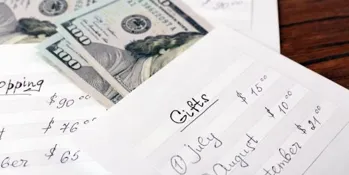- Quick Summary
- Introduction
- Excess Streaming Services
- Eliminate Bank Fees
- Increase Insurance Deductibles
- Avoid Impulse Purchases
- Avoid Credit Card Debt
- Eliminate Cable Bill
- Find Ways to Cut Cell Phone Bills
- Don't Always Upgrade to the Latest Phone
- Lower Your Housing Costs
- Reduce Your Debt
- Lower Utility Bills with Energy Efficient Appliances
- Utilize the Library
- Don’t Buy Coffee in Coffee Shops
- Try to DIY Various Items
- Cut Out Gym Memberships
- Cancel Delivery Services
- Cut Back on Data Storage
- Limit Restaurants and Takeout
- Don't Buy the Car Wash Subscription
- Build an Emergency Fund
- Conclusion

- Quick Summary
- Introduction
- Excess Streaming Services
- Eliminate Bank Fees
- Increase Insurance Deductibles
- Avoid Impulse Purchases
- Avoid Credit Card Debt
- Eliminate Cable Bill
- Find Ways to Cut Cell Phone Bills
- Don't Always Upgrade to the Latest Phone
- Lower Your Housing Costs
- Reduce Your Debt
- Lower Utility Bills with Energy Efficient Appliances
- Utilize the Library
- Don’t Buy Coffee in Coffee Shops
- Try to DIY Various Items
- Cut Out Gym Memberships
- Cancel Delivery Services
- Cut Back on Data Storage
- Limit Restaurants and Takeout
- Don't Buy the Car Wash Subscription
- Build an Emergency Fund
- Conclusion
Money keeps getting tighter and tighter, and many are just making ends meet. You’re probably looking for ways to stretch your paycheck further. Chances are you’re paying for items or services that you really don’t need. Well, we’ve got you covered. By following the strategies outlined in this article, you can achieve significant savings of $20,000 in less than a year. We’ve found 18 expenses you can cut that will save you over $20,000 a year.
Introduction
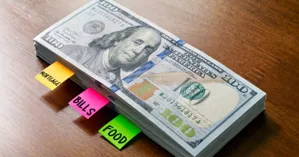
Saving money is a crucial aspect of securing your financial future. By cutting out unnecessary expenses, you can significantly boost your savings and achieve your financial goals. In this article, we will explore various ways to save money, including reducing impulse buys, car washes, and building an emergency fund. By implementing these strategies, you can save over $20,000 a year and achieve financial freedom.
Excess Streaming Services

How many subscription services do you have? The average for most American households is four services. Are you using all of them? Pick out the ones you watch the most and cancel the rest. You may even have some services you have forgotten. Go through your credit card bill or debit card and look for subscription services. Canceling the ones you don’t use or even remember is not a big deal and can lead to significant savings.
Eliminate Bank Fees
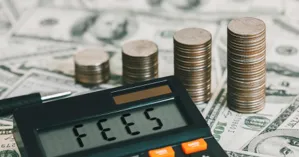
Most traditional banks charge fees. They'll charge anywhere from $15 to $25 per month. Others will charge you if you go below a specified balance. Most of them have overdraft charges. These all can eat up your payday. Look for banks that don't charge a fee or require a certain balance. Most online banks don't need a specified balance, and some don't have overdraft fees. Shop around, or you'll be spending money and not getting anything in return.
Increase Insurance Deductibles
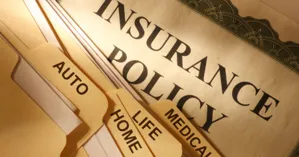
Increasing your deductible is a great way to reduce your monthly insurance premium. Usually, when your deductible goes up, your premium goes down. Ask your insurance agent to run the numbers if you raise your deductible. But only do this if you don't use your insurance very often or can afford the deductible if you were to need to.
Avoid Impulse Purchases

Buying less food at the grocery store will help cut expenses. Using coupons for cleaning supplies can further reduce your grocery expenses. Make a shopping list, and don’t deviate from it. Resist the urge to make impulse buys. Do you really need to try that new energy drink that’s more expensive than you usually buy? Organize your list around the sales the store is having and only go to areas of the store that have items on your list. Don’t set yourself up to be tempted.
Avoid Credit Card Debt
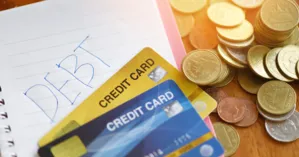
Delete your credit cards from your favorite online retailers. Make it as difficult as possible to buy online. If it's not just a swipe of the order button without having to input your information, you probably won't buy the item. Looking for your card may force you to think about whether you even need an item.
Eliminate Cable Bill

If you’re paying for cable and streaming services, at least cancel one. We suggest you cancel the cable. The average cable bill in the U.S. is $122 per month, which is $1,464 yearly. It’s even more if you have the premium tier. You could have three serves for $21 if you bought the ones with ads. And let’s face it, you're seeing plenty of ads with cable, so what's the difference?
Find Ways to Cut Cell Phone Bills

How much are you paying for your cell phone? Are you really getting a deal? Numerous lower-cost plans and carriers can offer you a better price. Shop around and see what's available, then make the switch.
Don't Always Upgrade to the Latest Phone

How's your phone working? Do you really need the newest iPhone? If you find yourself checking out the latest phone, consider why. Do you need the phone, or are you trying to keep up with the Joneses? What is your motivation? If the phone you have is perfectly fine, stay out of the Apple Store.
Lower Your Housing Costs

If you are single and have two bedrooms in your apartment, consider going with a one-bedroom. Or you should consider a roommate. The low end of a two-bedroom apartment in the U.S. is $1,317. Your area might be higher. How much money could you save by downsizing? You could potentially save thousands of dollars annually by making this change.
Reduce Your Debt
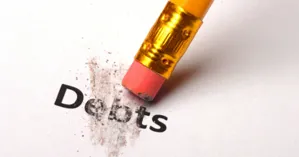
If you have heavy credit card bills and have always made your payments on time, ask your credit card issuer for a lower interest rate. Using any extra money to pay off loans faster can help you save more in the long run. If they don’t lower your interest rate, consider transferring your balance to a credit card with a lower rate. Many have promotions where they have a low interest or no interest introductory rate for the first six months to a year. Another option is to consolidate your debt with a lower interest personal loan.
Lower Utility Bills with Energy Efficient Appliances
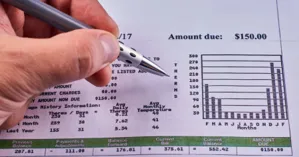
Reduce your utilities by tweaking how you use electricity and water. Using energy-efficient appliances can significantly reduce your utility bills over time. Do you have a low-flow toilet? The EPA states you can save $140 annually by using a low-flow toilet. Check for leaky faucets both inside and outside. Your heating and cooling bill can be lowered by tweaking the thermostat up or down, depending on the season. Ensure all your electrical appliances or devices (unless charging) are unplugged. Vampire electricity or phantom power are devices that use electricity when plugged into an outlet but are not being used at the time.
Utilize the Library

Use your local library for books, music and movies. Volunteering at cultural festivals and events often provides free admission as a benefit. Libraries now have apps where you can reserve books. You can also rent eBooks, and borrow movies. And they haven’t forgotten music; that’s available as well. Apply for a library card and check out what they have.
Don’t Buy Coffee in Coffee Shops

Buy your favorite coffee in bulk, then brew it yourself. Use your go cup daily instead of stopping at the coffee shop on your way to work. Instead of meeting with friends at the coffee shop, take turns holding coffee klatches at each other's homes. If you have a park nearby and the weather is fine, meet there as long as you meet where you aren't buying anything, you can save money and still have fun.
Try to DIY Various Items

Go on Pinterest, social media, or YouTube and learn how to make essential items you use around the house. For example, you could make your own household cleaners, laundry detergent, soaps, and even dog food. Yes, you have to buy the ingredients, but it will still be less expensive than buying the items. And it will probably be more sustainable.
Cut Out Gym Memberships

Did you get that gym membership in January with the intention of working out every day? When's the last time you used it? If the answer is "I can't remember," then cancel it. It's probably costing you $50 to $100 monthly, and that's money that's going down the drain.
Cancel Delivery Services

If you subscribe to delivery services like Instacart or Hungryroot, cancel them. If you really hate grocery shopping, shop online at your local grocery store and do curbside pickup. Then you won’t have to walk into the store and face the crowds. Premade meal delivery services like Blue Apron and Home Chef will also suck the life out of your wallet. If you want gourmet meals, then go online and find some recipes. Learn to cook, and you'll probably eat healthier.
Cut Back on Data Storage

How much storage do you need? You might not need as much as you think. Check your data storage subscriptions with iCloud and Google Drive. You may now need the items you’ve been storing.
Limit Restaurants and Takeout
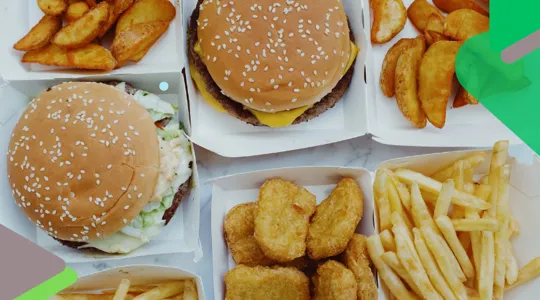
Do you need to go out three or four times a week? You're dropping a few hundred dollars a week just on fast food and table service. Take the time to shop in the grocery store and cook meals. It's healthier and much more budget-friendly. Takeout is right up there with eating out. In fact, it can cost more. You have to buy the food, pay for the delivery service and tip the driver. Make your own pasta dinner or hamburger.
Don't Buy the Car Wash Subscription

Car washes can be a significant expense, especially if you get your car washed regularly. According to a study, the average person spends around $300 annually on car washes. To save money, consider washing your car at home instead of using a professional service. You can purchase a bucket and sponge for a few dollars and wash your car in your driveway. This can save you around $300 a year and reduce your reliance on professional car wash services.
Build an Emergency Fund
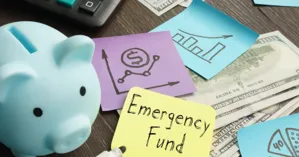
Building an emergency fund is essential for financial stability. According to financial advisor Dave Ramsey, you should save $1,000 in an emergency fund ($500 if you make less than $20K a year). This fund should be untouched for any reason other than an actual emergency. Having an emergency fund can help you avoid turning to credit cards for unexpected expenses, which can lead to credit card debt. By building an emergency fund, you can save money and achieve financial peace of mind.
Conclusion
There are numerous items you can mark off your expenses list. All you need is a little thought and discipline. In these inflationary times, make your paycheck go further by knocking off the pricy parts of your life.



